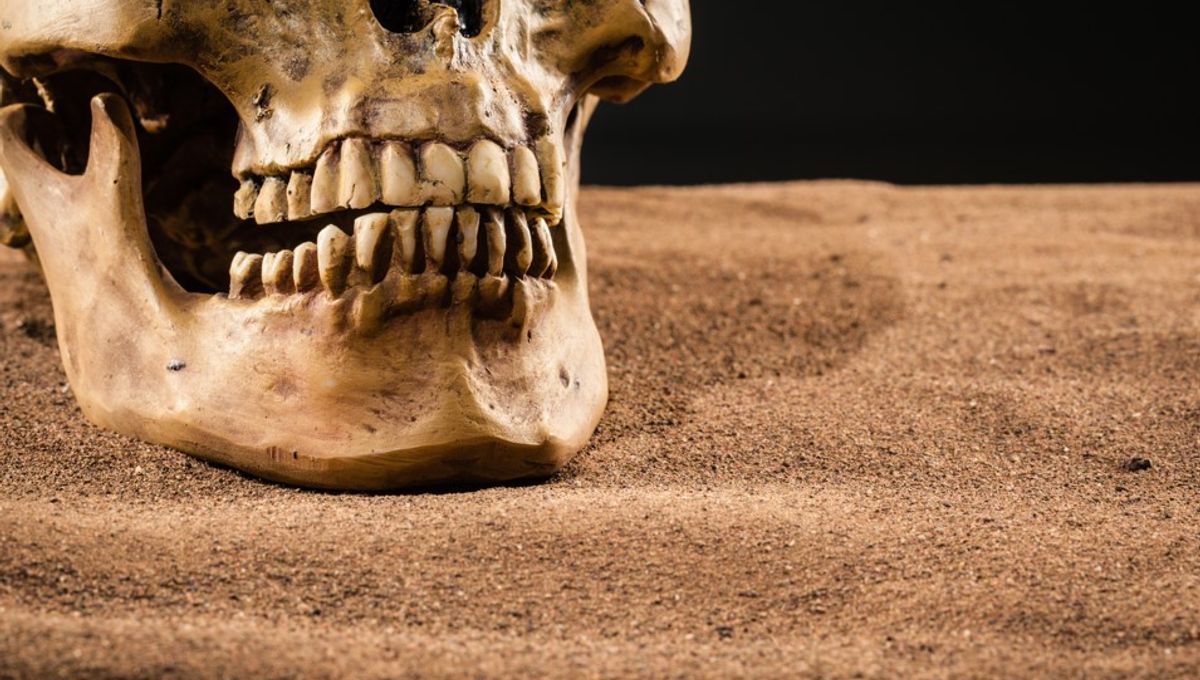
Dental hygiene has come a long way over the past few hundred millennia. While most of us now automatically brush our teeth twice a day, ancient humans had a much harder time looking after their pearly whites. Sadly for our long-in-the-tooth ancestors, many of their archaic dental practices appear to have been ineffective, leading to high rates of tooth decay and gum disease among prehistoric skeletons – although evidence suggests they did at least try to keep their chompers in decent condition.
The earliest indication of dental care can be found on a set of 130,000-year-old Neanderthal molars from a Croatian cave, which show signs of having been repeatedly scraped by some sort of toothpick. Unfortunately, no actual picks were discovered alongside the prehistoric remains, but based on the markings, researchers suspect that Neanderthals probably used bits of bone or stiff grass to remove food from between their teeth.
Fast-forward to around 14,000 years ago and you arrive at the earliest known dental patient. Discovered in a rock shelter in Italy, this unfortunate individual appears to have suffered from tooth decay, with the rotten component of at least one tooth having been intentionally scraped away using some sort of sharp stone tool. If ever there was an advert for brushing your teeth, this old dude is surely it!
Things started to become a little more sophisticated around 5000 BCE when the ancient Egyptians developed the world’s earliest toothpaste. More like a tooth powder, this mixture contained ingredients like ash from charred oxen hooves, egg shells, myrrh, and pumice, and was probably more abrasive than cleansing – but could at least have removed debris from around the teeth.
The Persians later added burnt snail and oyster shells to the mix, along with herbs and honey, before the Romans threw in charcoal and tree bark with the goal of reducing bad breath.
The earliest primitive toothbrushes were also found in ancient Egyptian and Babylonian tombs, and have been dated to around 3500 BCE. Unlike modern brushes, these implements were essentially just twigs that had been chewed to fray the fibers into bristle-like arrangements that could be used to clean the teeth.
As unsophisticated as that may sound, it’s worth noting that these chewing sticks were taken from specific trees such as neem and Salvadora persica in the case of miswak, both of which have antimicrobial properties and have been shown to slow the spread of certain bacteria associated with tooth decay and gum disease. In fact, twigs from these two trees continue to be used as a form of oral care in many Asian and Middle-Eastern countries to this day.
However, for the toothbrush purists out there, the earliest known conventional brush was probably invented in China during the Tang Dynasty, sometime between the seventh and tenth centuries CE. Featuring boar-hair bristles and handles made from bamboo or bones, these ancient toothbrushes are unlikely to have been as effective as their modern counterparts and may not have been widely used – possibly because few fancied brushing their teeth with pig hair.
All “explainer” articles are confirmed by fact checkers to be correct at time of publishing. Text, images, and links may be edited, removed, or added to at a later date to keep information current.
Source Link: How Did People Clean Their Teeth Before Toothpaste Was Invented?